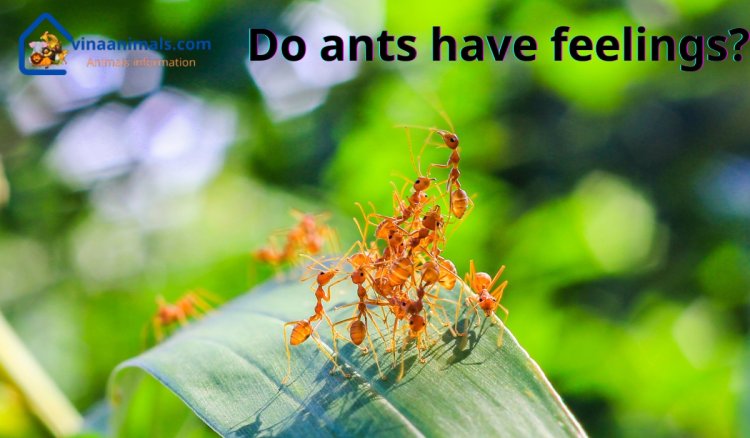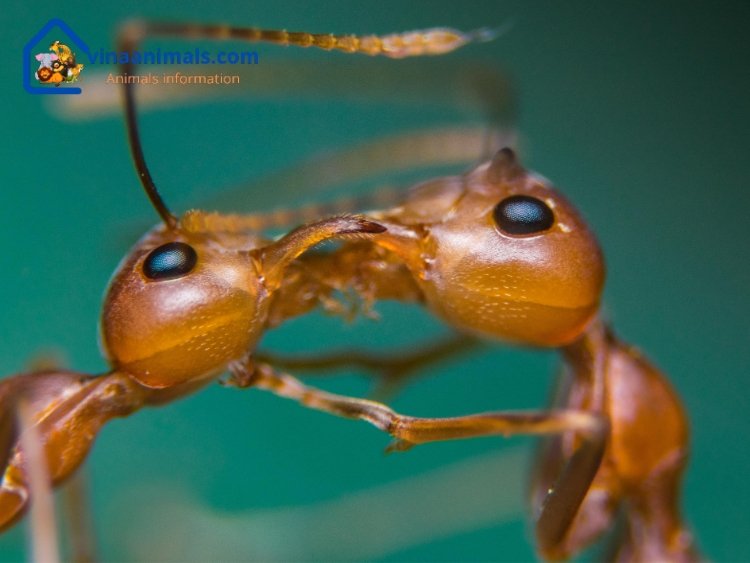Do Ants Have Feelings? 5 Interesting Questions About Ants' Emotions
Table of contents [Show]
Ants will run very fast when threatened. So do ants have feelings? Do they feel pain? Let's find answers to 5 frequently asked questions about ants' emotions in this article.

Do ants have feelings?
No. Ants don’t have feelings in the same way that humans or other animals with more complex nervous systems do. They do not have complex emotions such as sympathy, love or anger. But they know to reach for what is pleasant and avoid unpleasant factors.
While ants may exhibit complex social behaviors and cooperation within their colonies, these behaviors are not driven by emotions or conscious thought. Instead, they are the result of evolutionary adaptations and genetic predispositions that have developed over millions of years to ensure the survival and success of the colony.
As you know, ants have a fairly simple brain with 250,000 neurons. They use pheromones to communicate. Antennae and senses sense surrounding vibrations. A colony of ants can coordinate very well together, so some people have speculated that a whole colony could have feelings.
5 Interesting questions about ants' emotions
On blogs, forums,... there are many interesting questions related to the topic of ants' emotions. Here are some frequently asked questions.
Can ants feel pain?
The question of whether ants can feel pain is a subject of debate among scientists. Many people think that ants and other insects cannot feel pain because their brains are very simple. Some researchers argue that ants may experience some form of distress or aversion to harmful stimuli, while others believe their responses are purely mechanistic. Further research is needed to better understand the nature of consciousness and pain perception in insects, including ants.

Can ants get depressed?
No, ants and other insects don’t get depressed. Depression involves a series of very complex psychological and physiological factors. These are features of human psychology and neurobiology that are not applicable to ants.
Although ants don’t suffer from depression like humans., some studies have observed changes in ant behavior in response to stressors or environmental factors. For example, if an ant colony is exposed to extreme stress, such as a disruption in the colony structure or the loss of their queen, it can lead to changes in ant behavior. However, these changes are generally considered adaptive responses to challenges rather than indicators of depression.
Can ants feel lonely?
Ants do not have the emotional capacity to experience loneliness in the way humans do. It’s a uniquely human emotion that arises from our complex social and psychological makeup.
On the other hand, ants always work in groups. There are always many other ants around them. Their behavior is governed by complex chemical signals and instinctual responses. Ants don't have the cognitive ability to reflect on their social status or experience emotions like loneliness.
Do ants feel scared?
Ants don’t experience fear in the same way humans or other animals with more complex nervous systems do. They react instinctively when faced with external threats. When faced with a threat or potential danger, ants will flee, fight or emit signals to warn other ants in the colony. These responses are not driven by an emotional experience of fear but rather by the ants' genetic programming and chemical communication systems. They are more like reflexes or automatic reactions aimed at ensuring the ant's survival and the protection of the colony.
Do ants have memories?
Ants do have a form of memory, but it is quite different from human memory, what is known as "associative memory" or "learning by association." Their memory is primarily focused on recognizing patterns and making connections between specific stimuli and outcomes. This form of memory is essential for their survival and for the functioning of their complex societies.
For example, they can learn the location of a food source and return to it by following chemical trails laid down by other ants. They can also learn to avoid certain substances or locations that have been associated with danger or harm.
Above is the answer to the question “Do ants have feelings?" Ants don’t have complex emotions like humans, instead they are mainly instinctive reactions to factors affecting the surrounding environment. Hopefully, the article content has helped you learn a lot of useful information about ants.









![Do Ants Have Teeth? How Many Teeth Do Ants Have? [Do You Know?]](https://vinaanimals.com/uploads/images/2023/09/image_380x226_65070de7b10e6.jpg)
